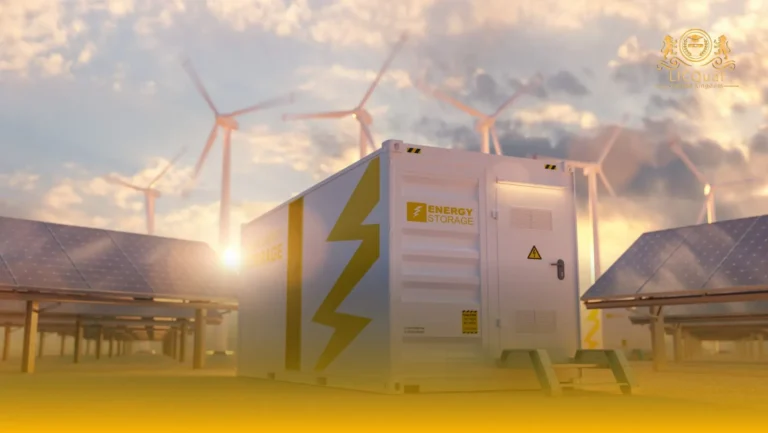Welcome to the LICQual Level 3 Certificate in Green Building Technology (GBT) course – your gateway to understanding the principles and practices of sustainable construction. This accredited qualification is designed for individuals looking to enhance their knowledge and expertise in green building technologies.
Whether you’re an industry professional or a newcomer to the field, this course will equip you with the essential skills to drive eco-friendly construction projects, reduce environmental impacts, and contribute to a more sustainable built environment.
As the construction industry evolves, the demand for professionals who understand sustainable practices and technologies continues to grow. The LICQual Level 3 Certificate in Green Building Technology (GBT) focuses on the integration of energy-efficient systems, renewable resources, and environmental conservation strategies in building design and construction. This certification will not only increase your employability but also give you the practical knowledge needed to implement green building techniques in real-world projects.
The LICQual Level 3 Certificate in Green Building Technology (GBT) is a comprehensive program that delves into the core aspects of sustainable building design. The course covers key topics such as energy-efficient construction, sustainable materials, renewable energy systems, and the environmental impact of buildings. It is designed to prepare students for careers in the growing field of green building, which is becoming increasingly important as society seeks to address climate change and environmental degradation.
Throughout the course, you will explore the principles of green building technologies, including the latest innovations in energy-saving solutions and eco-friendly construction materials. With a focus on practical applications, this qualification will teach you how to design, build, and manage green buildings that meet high environmental standards, reduce carbon footprints, and promote resource efficiency.
Course Overview
Qualification Title
LICQual Level 3 Certificate in Green Building Technology (GBT)
Total Units
6
Total Credits
24
GLH
120
Qualification #
LICQ2200378
Qualification Specification
To enrol in the LICQual Level 3 Certificate in Green Building Technology (GBT), candidates must meet the following entry requirements:
- Educational Requirements: Applicants should have a Level 2 qualification (or equivalent) in a relevant field such as construction, architecture, engineering, environmental studies, or sustainability. Candidates with a strong interest in green building technology and a basic understanding of construction principles may also apply.
- Experience: No prior work experience is mandatory, but familiarity with construction, architecture, or sustainability-related fields is beneficial. This course is ideal for both beginners and professionals looking to expand their expertise in sustainable building practices.
- English Language Proficiency: Since the course is conducted in English, applicants must have a basic understanding of written and spoken English. Non-native English speakers may be required to provide proof of proficiency through a recognized language test or equivalent qualification.
- Age Requirement: Candidates must be at least 18 years of age at the time of enrolment.
|
Qualification# |
Unit Title |
Credits |
GLH |
|---|---|---|---|
|
LICQ2200378-1 LICQ2200378-2 |
Net-Zero Energy Buildings: Principles and Strategies Sustainable Building Materials and Green Procurement |
4 4 |
120 120 |
|
LICQ2200378-3 |
Advanced Energy Efficiency and Conservation Techniques |
4 |
120 |
|
LICQ2200378-4 |
Climate-Responsive Architecture and Passive Design |
4 |
120 |
|
LICQ2200378-5 |
Green Building Rating Systems (LEED, BREEAM, WELL) |
4 |
120 |
|
LICQ2200378-6 |
Smart Building Technologies and Automation |
4 |
120 |
By the end of this course, learners will be able to:
Net-Zero Energy Buildings: Principles and Strategies
- Understand the concept of Net-Zero Energy Buildings (NZEB) and their role in reducing environmental impact.
- Analyze energy-efficient design strategies, including passive solar design, insulation techniques, and on-site renewable energy generation.
- Develop approaches for optimizing energy consumption in buildings to achieve net-zero energy status.
Sustainable Building Materials and Green Procurement
- Identify and evaluate eco-friendly, sustainable building materials that minimize environmental harm.
- Understand the principles of green procurement and its impact on sustainable construction projects.
- Learn to assess life-cycle costs and environmental footprints of various construction materials.
Advanced Energy Efficiency and Conservation Techniques
- Apply energy efficiency principles to enhance building performance and reduce energy consumption.
- Evaluate HVAC systems, lighting solutions, and insulation technologies that contribute to energy conservation.
- Learn to implement smart energy management systems for optimized resource usage in buildings.
Climate-Responsive Architecture and Passive Design
- Understand how climate-responsive design improves building sustainability and occupant comfort.
- Apply passive design strategies, such as natural ventilation, daylighting, and shading techniques, to optimize energy use.
- Develop site-specific design solutions that reduce reliance on mechanical systems while enhancing thermal performance.
Green Building Rating Systems (LEED, BREEAM, WELL)
- Gain knowledge of global green building certification systems, including LEED, BREEAM, and WELL.
- Understand the assessment criteria, scoring systems, and compliance requirements for each certification.
- Learn how to integrate green building practices to meet certification standards and enhance project sustainability.
Smart Building Technologies and Automation
- Explore the role of AI, IoT, and automation in enhancing building sustainability and operational efficiency.
- Understand how smart sensors, building management systems (BMS), and energy monitoring tools optimize resource usage.
- Learn to integrate smart building solutions for improved energy performance, occupant comfort, and long-term cost savings.
This diploma is ideal for:
- This course is for individuals interested in pursuing a career in green building and sustainable construction practices.
- It’s suitable for professionals looking to enhance their knowledge and qualifications in the field of green building technology.
- Ideal for those working in construction, architecture, engineering, or environmental management who want to specialize in sustainable practices.
- The course is also aimed at people wanting to transition into the growing field of sustainable development and energy-efficient building systems.
- It’s designed for individuals who are already working in or studying construction, but want to gain expertise in green building and technology to improve environmental impact.
- Suitable for learners who want to understand the principles and technologies behind low-carbon and energy-efficient buildings.
- This program is for those seeking to develop the skills to design, construct, and manage buildings that meet modern environmental standards.
Assessment and Verification
All units within this qualification are subject to internal assessment by the approved centre and external verification by LICQual. The qualification follows a criterion-referenced assessment approach, ensuring that learners meet all specified learning outcomes.
To achieve a ‘Pass’ in any unit, learners must provide valid, sufficient, and authentic evidence demonstrating their attainment of all learning outcomes and compliance with the prescribed assessment criteria. The Assessor is responsible for evaluating the evidence and determining whether the learner has successfully met the required standards.
Assessors must maintain a clear and comprehensive audit trail, documenting the basis for their assessment decisions to ensure transparency, consistency, and compliance with quality assurance requirements.







